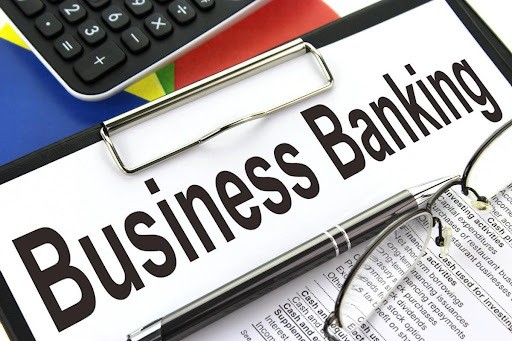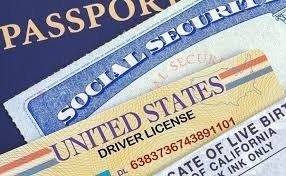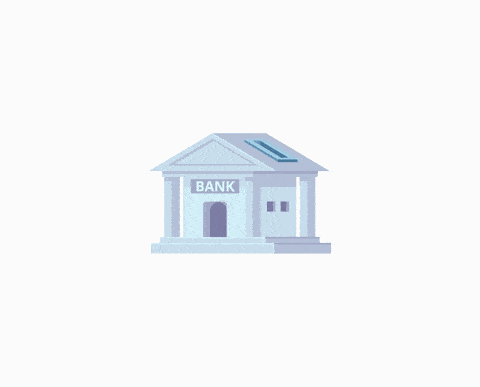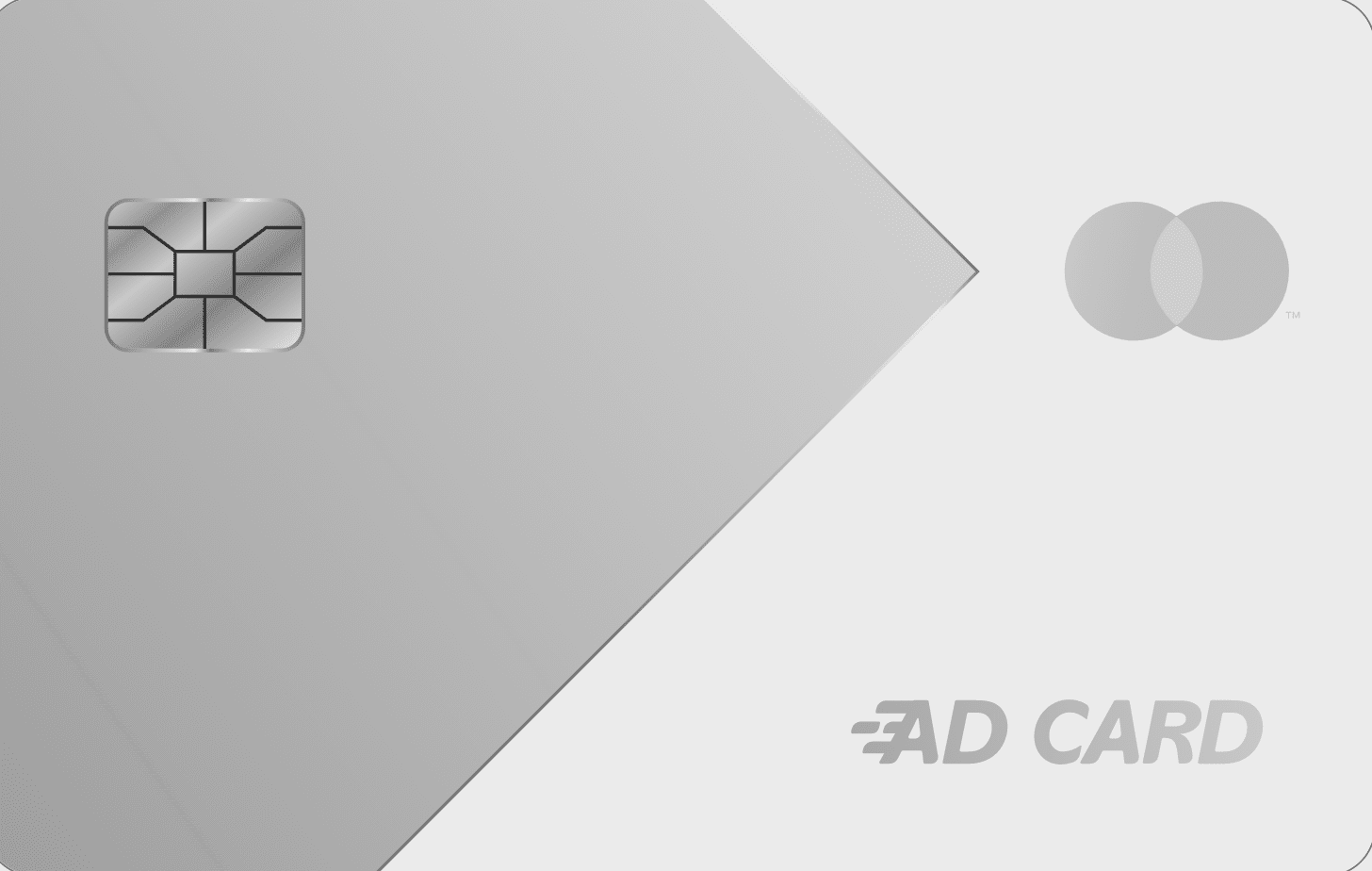Give your company credibility, avoid financial pitfalls, and manage your money easier by making the right choices.
So you’ve launched a new business. Congratulations! You’re starting small but have a lot of big plans that you’ll need to lay the groundwork for now. And that includes banking. If you’re a start-up, you may not think you need to open a business bank account right away. But you do. And here’s why.

When you open a business bank account you’ll be taking a crucial step to help you to improve cash flow and to make managing expenses easier. The trick is to choose the right one and open a business account that will give you total control with a minimum amount of effort.
Why do you need to open a business bank account?
According to a 2017 study by TD Bank, more than 27% of small business owners use the same bank account for both personal and business purposes. That’s because, in a lot of cases, the founders who bootstrap their companies start by using their own funds. That can be okay in the very early stages, but as the months go by it becomes more and more apparent why it’s essential to separate personal and business finances in order to protect both.
The problem is that combining business and personal finances complicates your business’s cash flow, deductions, spend visibility, and tax preparation. Plus it makes you vulnerable to fraud, theft, and the improper use of funds. A business bank account helps you avoid some of these serious dangers. But it’s not all about preventing bad things from happening. There are also a ton of positive benefits that can help your business grow and prosper.
What you get when you open a business bank account
Sure, just keeping a personal account and also using it for business might seem a simpler way to do things. But there are a wide variety of advantages to opening a separate account for business dealings, including:

- Increased sense of perceived professionalism and trust
- Secure personal information for client transactions
- Easier business expense tracking
- Gives employees safe access to company funds
- Potentially higher interest rates on savings and checking accounts
- Lets you access a line of credit or apply for a business loan
- Strengthens your company’s credit history
- Lets you take full advantage of tax deductions
- Gives you business-oriented incentives like easier ACH payroll payments or higher interest yields
How to open a business bank account
1. Decide what kind of business bank account you need
There are a lot of things to take into consideration when choosing which type of business bank account is right for your needs. Depending on your requirements and what the bank offers you may end up opening just one or a combination of two or more.
Different types of business bank accounts

- Free business checking. This kind either has no fees, or waives the fees if your business has a sufficient monthly minimum balance or meets certain transaction limits.
- Traditional business checking. While this sort of account may charge monthly or annual fees, it often offers a higher APY and may give you services like wire transfers or bill pay.
- Online business checking. This kind is great for businesses who don’t deal in cash and have a need for speed
- Business savings account. This account is best if you have funds that you can let sit for a while and earn interest but still be accessible.
2. Choose a financial institution
You may already have a good relationship with the bank that you have your personal accounts with, so that might be a good place to start. If you haven’t been happy with their quality of service, this may be an opportunity to move your account and open a business account elsewhere. Compare the offerings of a variety of different banks. Also, consider credit unions, and other financial institutions to determine which one best suits your needs.

-
Explore the advantages of combined services
Time is money. As someone who is involved in the hard work of starting a business, you may find that it’s more convenient and affordable to do all of your banking in one place. And many banks or credit unions provide incentives for bundling a business checking account and a business savings account. Other incentives for you to open a business bank account might include providing you with merchant services at more competitive rates because you are an existing customer. Other enticements might include access to a business credit card or give you faster loan processing for your business.
-
Weigh the value of convenience
You might be someone who likes to bank in person you’ll want to find a financial institution that’s close to your business or easy to get to. If you prefer online banking you can deal with a bank in just about any location as long as their functions integrate with yours. In the same vein, you might want to take a look at the user-friendliness of their apps. Inconvenient banking annoyances can be frustrating and time-consuming so make sure you choose a financial institution that will make business banking as easy as possible.
-
Decide between using a traditional bank or a credit union
You may think there’s not much of a difference between the two. But there is. The main one is they both often offer the same products and features, credit unions may be able to provide more favorable pricing and fees. They also tend to be more focused on addressing local and personal concerns that corporate banks are less concerned with. On the other hand, you may be a tech-oriented business owner who demands the accessibility and speed of the latest technology. In that case, a big corporate bank might be the right choice for you.
Want the best of both worlds? You might want to look at a community bank or smaller bank that can give the high-tech services along with the personal touch you need. To help you decide where to open a business bank account, let’s take a look at the pros and cons of each option.
Traditional bank
PROS
- Better mobile applications
- Better mobile applications
- More nationwide financing options
CONS
- Higher interest rates on loans
- Higher transaction fees
- More or tougher eligibility requirements
Credit union
PROS
- Lower interest rates on loans
- Higher interest rates on business savings accounts
- More financial education resources
CONS
- Fewer options and branches
- Fewer technological tools and applications
- May not offer business-oriented incentives
3. Figure out account fees
Even if a financial institution advertises itself as offering “free banking”, they might still charge you for certain services. So it pays to do your research so you won’t be surprised by fees later. Here is a list of the types of fees you will want to look into.

- Monthly maintenance fees
- ATM fees
- Deposit fees
- Overdraft fees
- Minimum or maximum transaction penalties
- Fees for additional cards and checks
- Wire transfer fees
Fees are fine — if you know what they are and can put together a strategy to avoid them. Take a look at your list of last month’s expenses and activities to see whether the fees the financial institution charges would apply to your account. If you rarely if ever have overdrafts or do things like wire transfers, those fees really shouldn’t factor into your decision.
4. Get your paperwork in order
In order to open a business bank account, you need to have certain documentation on hand. Every bank is different, but whether you apply in person or online you’ll want to make sure you have some of the most common documentation that financial institutions require to verify your business’s identity. The information you’ll need to open a business bank account includes:

- Your company’s legal business name
- Employee identification number (EIN)
- Business address
- Business phone number, email address, website, etc.
- Drivers License (for ID number and photo)
- A second form of photo identification, such as a passport
- Business license, partnership documents, or articles of incorporation or organization depending on your business structure
- Account information for other accounts at the same bank or other financial institutions
- Names of any individuals other than yourself who will be issued cards
Chances are, you won’t need every single item on the list above to open a business bank account. But you should have them handy in case you need them. The bank will definitely want some combination of documents based on your company’s size and structure. For example, if your company is a sole proprietorship you’ll need to provide a Social Security number and two forms of personal ID, but if your company is an LLC, you won’t have to,
5. Apply to open your business bank account
You can either do that online or in person. These days online applications and approvals are becoming the standard. commonplace. And no wonder. Applying online lets you request banking services immediately, 24/7 from anywhere in the world. Which makes it easier for small business owners to apply who don’t have a brick-and-mortar location or who have an office or store that isn’t close to a physical bank location.
If you do choose online banking your customer service will sometimes be limited to phone or live chat, instead of face-to-face communication of banking in person. However many banks offer the option of both in-person and online services so you can use whichever one makes sense for you at the time. It all depends on what your financial institution offers and your personal preference.
6. Fund your business bank account

Once you’re approved and your account is open, you can deposit funds. You can make cash deposits at a physical bank location. You can also deposit a check written from another bank account or via an online draft. But be careful. The bank may have limits on deposits and may hold money from remote deposits of checks for a certain number of days before you can have access to the money.
Explore alternatives to traditional business bank accounts
Before I close out here, I want to mention that although traditional banking options are still great ways to get your small business off the ground, there are new choices being offered every day. A lot of new entrepreneurs are looking at a cash management account or CMA as an alternative.
How to know whether CMA is right for you.
A CMA is a cash account that combines services and features similar to checking, savings and/or investment accounts all in a single product or software. They are typically offered by non-bank financial service providers. The good thing about them is that some are able to offer above-average interest rates and reasonable or no fees thanks to the low overhead of online-only services.
This alternative to traditional business bank accounts is ideal if you prefer to do all your banking online and want a seamless, way to handle your finances and spend.
No matter where you decide to open a business bank account, you should do your homework on both traditional banking and alternative banking solutions. That way you can compare options and find the best rates, lowest fees, a comfortable form of customer service, and if you want them, the cutting edge technologies that can make banking a breeze.
Take up to 3% cash back to the bank.

The average small business has 5 credit cards with a balance of about $32k that they have to keep track of. There’s a better way than rotating through dozens of low-limit credit cards to get the funding you need to scale when you can get it all with AdCard — the best card for Facebook ads with the high limits and the cash back you need to grow your business.


